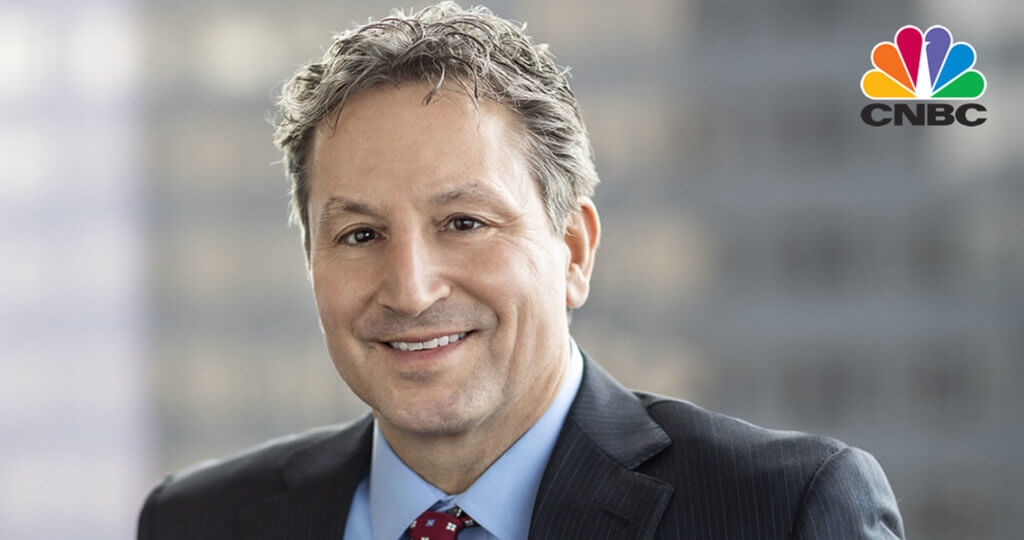Oakmark International Fund – Investor Class
Average Annual Total Returns 06/30/23
Since Inception 09/30/92 8.73%
10-year 4.97%
5-year 3.13%
1-year 22.90%
3-month 3.05%
Expense Ratio: 1.04%
Expense ratios are from the Fund’s most recent prospectus dated January 28, 2023; actual expenses may vary.
Past performance is no guarantee of future results. The performance data quoted represents past performance. Current performance may be lower or higher than the performance data quoted. The investment return and principal value vary so that an investor’s shares when redeemed may be worth more or less than the original cost. To obtain the most recent month-end performance data, view it here.
The Oakmark International Fund (“the Fund”) returned 3.1% for the quarter that ended June 30, compared to the benchmark, the MSCI World ex U.S. Index, which returned 3.0% for the same period. In addition, the Fund has returned an average of 8.7% per year since its inception in September 1992, outperforming the MSCI World ex U.S. Index, which has averaged 5.9% per year over the same period.
BMW (Germany) was the top contributor to the Fund’s performance for the quarter after releasing a strong set of fiscal first-quarter results. BMW demonstrated continued positive momentum in price/mix, reflecting improved product mix, disciplined pricing, and BMW’s premium positioning. BMW is also showing excellent progress in its electrification strategy. Its battery-electric vehicles have increased by 112% year-over-year to 11% of volumes. Management reiterated its targets of 15% of volumes by 2023 as well as long-term guidance of over 50% by 2030. Although overall volumes declined slightly in the first quarter, this was largely due to a 6.6% decline in China. Management expressed significant confidence that volume performance will improve as the market cycles Covid-19 effects as well as in the company’s long-term premium position for both battery-electric and internal combustion vehicles. BMW delivered a 12.1% EBIT margin in the automotive segment. While already robust, this understates the underlying performance because of the accounting related to the company’s purchase of an additional stake in its Chinese joint venture last year. We continue to appreciate BMW’s forward-thinking management team, strong balance sheet, focus on technology and flexible approach, allowing it to be one of the best-positioned original equipment manufacturers to meet the challenges facing the automotive industry.
Alibaba Group (China) was the top detractor for the quarter. Sentiment in Chinese equities has degraded after the initial excitement from China’s reopening earlier in the year. Incremental macroeconomic data coming out of China indicates that the Covid-19 re-opening bounce is fading, and the economy is struggling to sustain healthy growth. Political tensions between the U.S. and China are also weighing on investor sentiment. As the largest e-commerce platform in China, Alibaba’s share price has been caught up in this storm. The company has also continued to face intense competition from the likes of short video players and traditional e-commerce companies. Indeed, Alibaba has lost market share, which we expect will continue. Despite these negative factors, Alibaba remains an extremely important platform in China and continues to generate significant free cash flow. In the most recent completed fiscal year, the company generated $25B of free cash flow, which is 12% of the current market capitalization. Today, its core commerce business trades at approximately 5x EBITA, a valuation we deem much too cheap, even with the headwinds noted above. But valuation alone is often not enough to unlock value. Alibaba’s management team is proactively working on behalf of minority shareholders. The company has been aggressive with share repurchases and with the recent formation of a capital management committee. Our conversations with the company indicate there is a high probability that more shareholder returns will be coming. In addition, the company recently announced a major restructuring that will effectively break up the company and separately list various businesses within Alibaba. Today, the market is assigning little to no value to these businesses and having a market quote may force investors to give Alibaba value for these assets. Irrespective of whether the restructuring works or not, we appreciate management’s efforts to help unlock value in what, we see, is clearly an undervalued stock.
We did not eliminate any positions during the quarter, and we initiated positions in Bank Mandiri (Indonesia) and Recruit Holdings (Japan):
- Bank Mandiri is the largest bank in Indonesia by branch count and maintains the country’s highest current account and savings account (CASA) market share. In our view, Indonesia is an attractive banking market due to low-cost deposits and high yields, high growth aided by favorable demographics, and an absence of government penalties and fines. In addition, we believe Bank Mandiri’s management can deliver impressive financial performance as it has already accomplished credit quality improvements, app launches that have led to declining branches and headcount, and net interest margin (NIM) expansion. Bank Mandiri’s launch of banking apps Kopra (wholesale) and Livin’ 2.0 (retail) were more successful than expected and generated sustainably positive effects on multiple key performance indicators. We also believe the recent NIM expansion is likely to continue due to management’s focus on aggressive loan re-pricing and low appetite for time deposit funding and that higher interest rates and NIM expansion will reveal return-on-equity that has structurally expanded due to cost efficiencies. Finally, Bank Mandiri, along with other state-owned enterprise banks, accounts for about half of the CASA market share for the Indonesian banking system and produces substantial dividends important to the federal budget, leading to alignment with key government ministries.
- Recruit Holdings provides human resource services, including job matching platforms, recruitment and staffing services and marketing services. Recruit Holdings owns Indeed, a leading global job site that generates what we view as highly attractive unit economics while saving customers time and money. We believe the business is under-monetized today and will capture improved economics going forward as it moves further down the funnel toward the hiring transaction. While Indeed dominates the headlines and valuation, we find the domestic advertising and recruiting businesses are strong growers that generate substantial cash and maintain leading market positions. In our view, near-term uncertainty in the U.S. labor markets has provided a rare opportunity to buy one of Japan’s highest quality companies with a unique, entrepreneurial and profit-focused culture.
Geographically, we ended the quarter with approximately 87.1% of our holdings in Europe and the U.K., 10.7% in Asia, and 0.2% in Australasia. The remaining positions are 2.0% in North America (Canada).
We thank you for your continued support.
The securities mentioned above comprise the following preliminary percentages of the Oakmark International Fund’s total net assets as of 06/30/2023: Alibaba Group 2.0%, Bank Mandiri 0.1%, BMW 2.3% and Recruit Holdings 1.0%. Portfolio holdings are subject to change without notice and are not intended as recommendations of individual stocks.
EBIT is a measure of a firm’s profit that includes all expenses except interest and income tax expenses. It is the difference between operating revenues and operating expenses.
EBITA refers to Earnings before the deduction of expenses for Interest, Taxes and Amortization which is a measure of operating income.
The MSCI World ex U.S. Index (Net) is a free float-adjusted, market capitalization-weighted index that is designed to measure international developed market equity performance, excluding the U.S. The index covers approximately 85% of the free float-adjusted market capitalization in each country. This benchmark calculates reinvested dividends net of withholding taxes. This index is unmanaged and investors cannot invest directly in this index.
On occasion, Harris may determine, based on its analysis of a particular multi-national issuer, that a country classification different from MSCI best reflects the issuer’s country of investment risk. In these instances, reports with country weights and performance attribution will differ from reports using MSCI classifications. Harris uses its own country classifications in its reporting processes, and these classifications are reflected in the included materials.
The Fund’s portfolio tends to be invested in a relatively small number of stocks. As a result, the appreciation or depreciation of any one security held by the Fund will have a greater impact on the Fund’s net asset value than it would if the Fund invested in a larger number of securities. Although that strategy has the potential to generate attractive returns over time, it also increases the Fund’s volatility.
Investing in foreign securities presents risks that in some ways may be greater than U.S. investments. Those risks include: currency fluctuation; different regulation, accounting standards, trading practices and levels of available information; generally higher transaction costs; and political risks.
The information, data, analyses, and opinions presented herein (including current investment themes, the portfolio managers’ research and investment process, and portfolio characteristics) are for informational purposes only and represent the investments and views of the portfolio managers and Harris Associates L.P. as of the date written and are subject to change and may change based on market and other conditions and without notice. This content is not a recommendation of or an offer to buy or sell a security and is not warranted to be correct, complete or accurate.
Certain comments herein are based on current expectations and are considered “forward-looking statements”. These forward looking statements reflect assumptions and analyses made by the portfolio managers and Harris Associates L.P. based on their experience and perception of historical trends, current conditions, expected future developments, and other factors they believe are relevant. Actual future results are subject to a number of investment and other risks and may prove to be different from expectations. Readers are cautioned not to place undue reliance on the forward-looking statements.
All information provided is as of 06/30/2023 unless otherwise specified.






